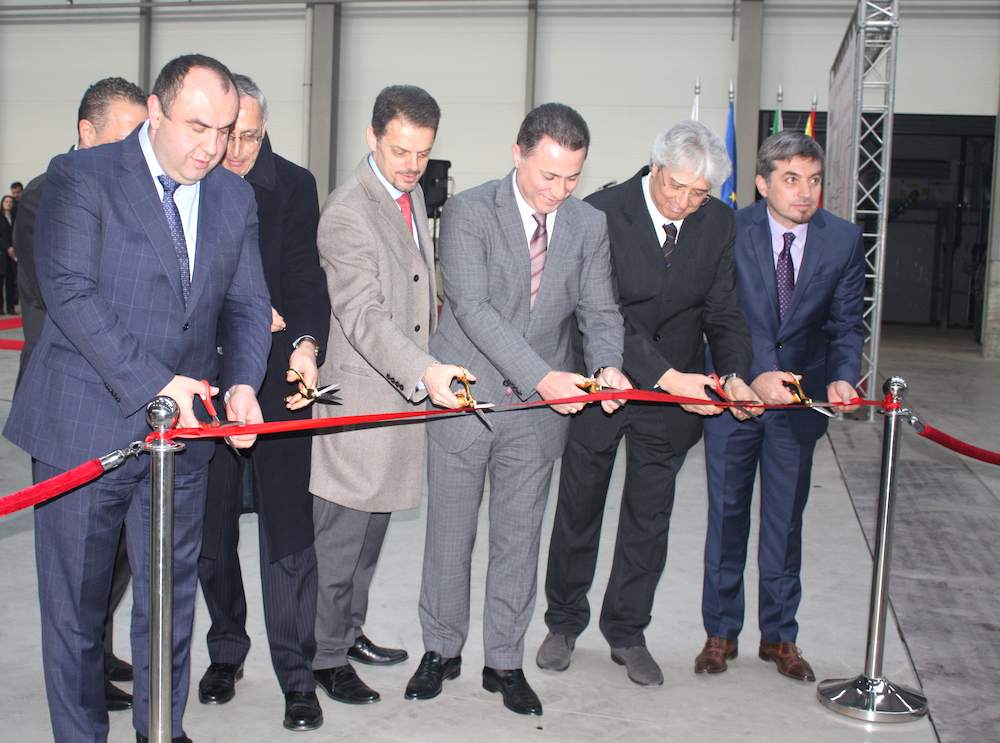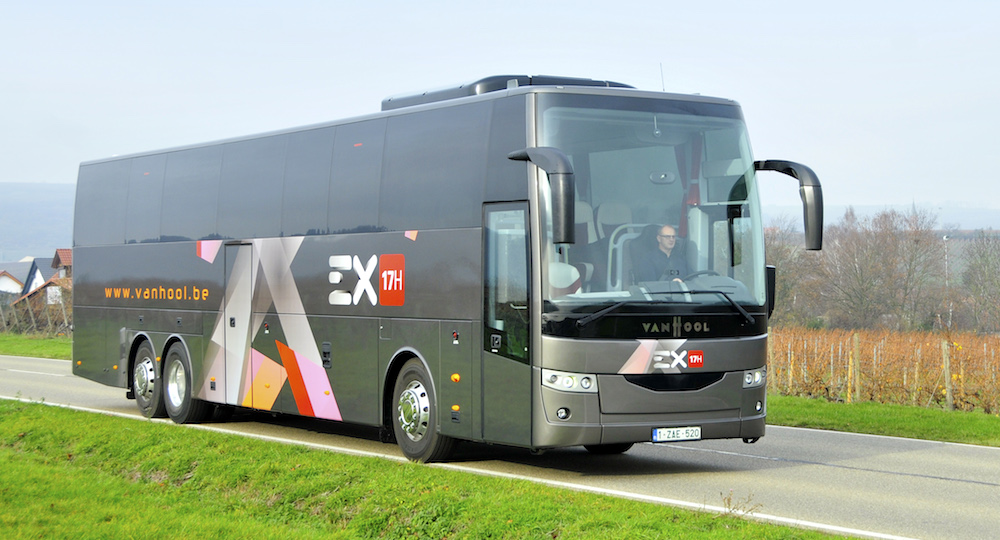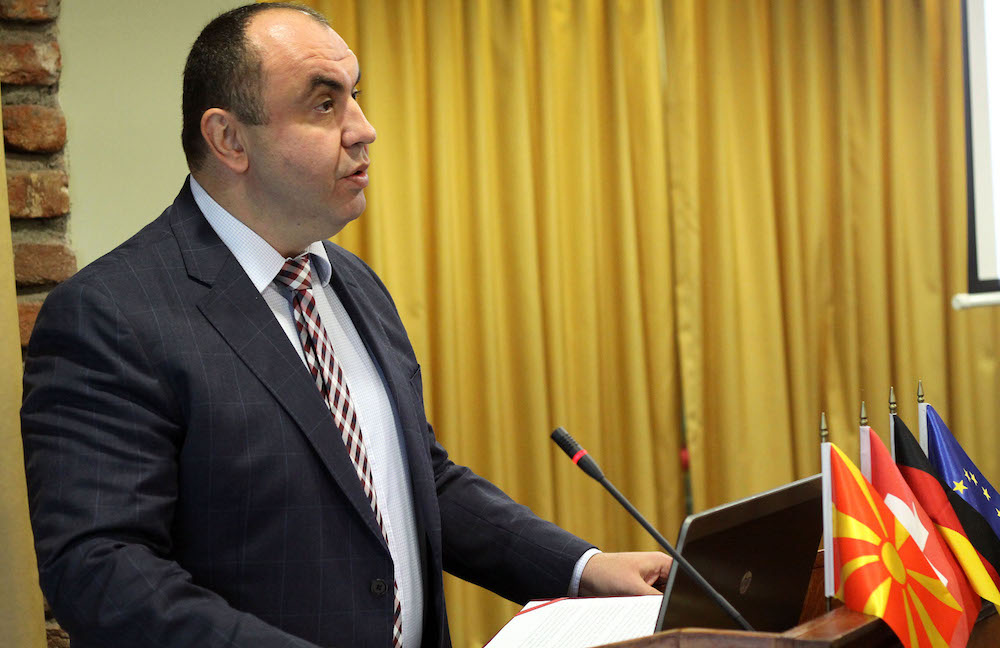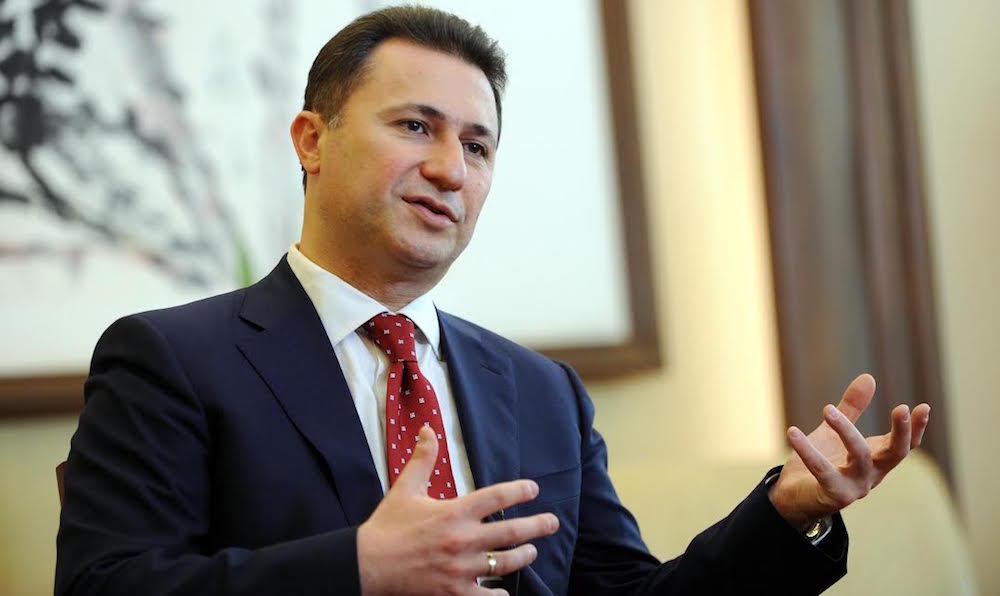Last year’s wire-tapping scandal, where the national security services allegedly recorded some 670,000 conversations from over 20,000 phone numbers illegally, paralysed the small Balkan nation of Macedonia. It is now a year later and the country, which has been an EU candidate since 2005, is trying to move on.
Prime Minister Nikola Gruevski stepped down in January 2016, after having been in power since 2006, as a result of negotiations that were led by Johannes Hahn, a European Union Commissioner. Macedonia is awaiting new elections which will be held on June 5 of this year and in the meantime a transitional government is in power.
However, the political turmoil of the past twelve months hasn’t discouraged foreign investors. Among them are American Cap-Con and Italian Vitilli Group. In December 2015, the American producer of inflators and airbags, launched production at ARC Automotive Macedonia, which is located in the Skopje Free Economic Zone. This is the company’s fifth global plant and the only one situated in Europe. The value of this investment is estimated at €17 million. The company currently employs 100 people but plans to increase the number to 500 within the next three years.
A long-term vision
In February 2016, the Italian Vitillo Group launched the second stage of its investment in the production of high-pressure hydraulic fittings and armoured rubber hoses, in the Skopje Free Economic Zone, as well as announced plans for further expansion in 2017. After the completion of this expansion, the value of the company’s total investments in Macedonia will reach €30 million and will create 300 jobs.
“Vitillo Group decided to invest in the country for the second time because of its positive experience [during the first stage of the project], but also and first and foremost because of, the long-term sustainability of the Macedonian government’s goals,” says Antonio Vitillo, the group’s CEO.

These long-term goals were set out a decade ago. Back then the economy ranked 81st in the World Bank’s Doing Business 2006 report and had a GDP per capita of about €2,431, an unemployment rate of 36 per cent and a population of just over two million people.
“For us sustainability is very important. In other words it’s not enough to attract one investor; if he’s not happy, this will be reflected in future investment. If the investor is happy they will stay; they will invest more and, in fact, that is that we’re seeking,” Vladimir Peshevski, Macedonian Deputy Prime Minister for Economic Affairs, tells Emerging Europe.
The government’s priority was to eliminate unnecessary procedures or at least to reduce their number, as well as to move most services online. “This saves time and costs and it also helps to eliminate corruption,” Mr Peshevski adds.
A global success
As a result, in the latest World Bank Doing Business report, Macedonia ranks 12th globally and sixth in Europe, ahead of the Old Continent’s giants such as Germany, France and Spain and it is first in emerging Europe.
The government is also investing in infrastructure, with three highways currently under construction. In 2011, Alexander the Great Airport opened a new terminal, handling over 1.5 million passengers in 2015. In March 2016, the Airports Council International (ACI) named it the Best European Airport for service quality.
Macedonia continues to develop its free economic zones, with a plan to establish as many as fourteen zones across the country. Victor Mizo, CEO of Macedonia’s Free Zones Authority, says seven zones will be operational within the first half of this year, as soon as they have their first investors.
“[We need] at least one investor and then the zone can operate as a stand-alone zone. If we don’t have a tenant, we won’t be able to allocate all the funds needed to set up an infrastructure in advance. Basically we have a fixed budget and we allocate that budget based on the needs of the investors; those who have made their investment decisions,” says Mr Mizo.
The government’s goal is also to provide a stable supply of high quality labour. “Alongside other reforms, we believe that that improvement of education is very important, so Macedonia has a very high percentage of its GDP allocated to education,” says Mr Peshevski.
“We introduced a compulsory second language; from day one in grade one all the way up until young people finish high school. Then when they go to university they have to study a foreign language for two years as well,” says Goran Mickovski, Minister for Foreign Investments.
Labour force availability
“90 per cent of them currently go on to university. So 96.5 per cent of our high school graduates are competent in English, over different levels, but they can speak it. Now, we’re also diversifying into other languages, for example German and Spanish. Investors appreciate that and they’re moving towards putting Macedonian people in charge of the operations here as plant managers, because they can speak the language and they have the experience,” Mr Mickovski adds.
Macedonia’s skilled and low-cost labour force was one of the reasons behind Van Hool’s investment. This Belgian manufacturer of buses, touring coaches and industrial vehicles had considered a number of locations across the CEE region, before it chose Macedonia.
“I think there is large supply of engineers, for the size of the country. Because ours is a very labour intensive operation, we wanted to find a country that would offer low labour costs. Additionally when we were still a part of Yugoslavia, we already had a big coach industry there, producing almost 1,000 buses per year. That meant the skilled labour force; the knowledge and the tradition were all here already. This was not the same for other locations. On top of that the social contributions, which are obligatory for employers, are among the lowest in the region. I am talking here about pensions and taxes,” says Avram Stojcevski, Plant Manager at Van Hool Macedonia.
Vanja Stojanovski, the plant manager at ARC Automotive, says his company’s employees earn between €250 and €300 a month, on average. “These are the operators that deal directly with the product and physically touch it. The people who support the production process have higher salaries, ranging from €300 to €500 Euros a month. It also depends on the specific skills that we need. Sometimes if you need people with particular skills that cannot be found here easily, we will start a negotiation process,” Mr Stojanovski adds.
Delivering promises
Foreign investors that spoke to Emerging Europe unanimously agreed that they valued the government’s approach and assistance in the investment process.
“The owners [of Van Hool] were satisfied with how proactive the government was, when they discussed the incentive package with them before they decided to start up with the operation. They really appreciated the government’s approachability and accessibility,” says Van Hool’s Stojcevski.

The Free Zone Authority’s Mizo says his most important task is not only to attract companies, but to make sure that we adhere to every single promise that we make.
“We are not just painting a rosy picture but rather we are creating realistic expectations that can be met. Even in Singapore not everything is perfect, even in Singapore there are issues and they are number one in the Doing Business ranking. We address any issue that a company has and we try to propose a solution, or at least to explain why certain things can or cannot be adjusted. If a new company comes to an environment they are not familiar with, no matter how many consultant firms or law firms they engage, they will need somebody from within the system to help them,” adds Mr Mizo.
That is why Macedonia’s Free Zone Authority has set up a board of directors, comprised of representatives of the cabinets of the Deputy Prime Minister for Economic Affairs, the Ministry of Economy, the Ministry of Finance and the Ministry of Transport, as well as three investors, who change every two years, which has a say in any necessary changes to be made. These changes are then passed on to the Economic Council which is chaired by the Prime Minister.
“We meet bi-monthly and we look at the issues. With the government and governmental institutions on one side of the table and all the companies on the other side, we go through them item by item, trying to address the problems or issues and to decide if there is a solution. Changing rules, regulations, laws or by-laws is not only going to help the investor but it’s going to help all the local companies, also,” says Mr Mizo.
Investors’ interest
This approach of contacting and interacting with investors, especially foreign investors, is critical for the Deputy Prime Minister for Economic Affairs. “We have developed a network of economic promoters. We have four ministers whose goal is to attract foreign direct investment. This has all resulted in a very large number of new investors coming to Macedonia,” says Mr Peshevski.
Between 2009 and 2014, foreign companies invested $1.72 billion, with almost $350 million in 2014 alone and their interest in Macedonia is growing, according to UNCTAD’s World Investment report of 2015. The government’s own analysis says that 90 per cent of foreign investors are satisfied with their projects.

“Interest is very high, especially from countries such as Germany, Italy, the UK, the United States and Turkey. We have a lot of activity because these countries are aware of our pro-business environment and the number of announcements of and new projects has been extremely high; in fact as high as I’ve seen it in the last two and a half years, since I’ve been a minister for foreign investment,” says Jerry Naumoff, one of the four Ministers for Foreign Investments.
Goran Mickovski, Minister for Foreign Investment responsible for the UK markets, says the feedback that he has received from the UK has been positive so far, especially where SMEs are concerned. “They tend to be more cost-conscious, less complicated in terms of decision making and a lot quicker in terms of moving into particular markets,” he adds.
Some companies, such as the Vitillo Group, look at Macedonia as a location to serve eastern markets. “One benefit that they all emphasise is the location of the country. They also talk about the business climate, the cost competitiveness, the tax regime, the friendliness of the people and the habits of hard work as well as employee loyalty and the low attrition rates that we have. Adding to the package we should take the FTA (free trade agreement) network into account, as well as the double tax agreements that we have with a very wide network of countries; these are things that they consider when they come here,” Mr Mickovski says.
Branding challenges
But it is a long way from needing to expand abroad to picking up a specific country, especially when we consider such a small country as Macedonia.
Minister Mickovski is certain that a few years ago hardly anyone had heard of his country. “Not many people knew about us, I mean as a place to visit, let alone as a place to invest. So we had to do all things in parallel; raise the awareness of who we are, where we are, what we do and to make it clear that we are a good business destination — we still have to do this,” he says.
“When people thought of Eastern Europe, before, they almost certainly did not think of Macedonia, but because they thought of the Balkan region as a whole, we were “guilty by association”. We were not involved in any of the activities that took place in the Balkans in the 1990s; the total disintegration of Yugoslavia, for example, and we didn’t necessarily have a negative image, but compared to other neighbours in the region, we had no image at all,” says Mr Mizo, who served as the head of Invest Macedonia a decade ago, when the country ran a large campaign in international media outlets.
However, the country took the wise step of inviting successful business people, of Macedonian origin and with much experience of working abroad, to bring in their experience and knowledge of how things are done in various countries around the world. This included the both ministers for foreign investment that Emerging Europe spoke to, who understand the language of international business.
“It’s important to understand what other people want to hear and what they actually want to know about a particular business environment, particular regulatory environment etc., so that they can get themselves into a position where they can make a decision to invest in this country’, says Mr Mickovski.
Minister Naumoff says he is someone foreign investors can relate to. “My approach is to try to show them that they can become more competitive, more profitable and can expand or enter into Europe more competitively by setting up operations and doing business here in Macedonia.”

The future ahead
Where is Macedonia headed now as far as its investment strategy is concerned? Mr Mizo says he would like to shift the focus somewhat towards more technically advanced companies rather than labour-intensive companies.
“We are not excluding labour-intensive industries. We believe that at this stage of development, by attracting capital to develop new technologies and their application in the national economy, we improve competitiveness, increase efficiency and productivity, and accelerate economic development. Foreign investments are essentially a conduit to a transfer of knowledge and the development of new technology. Balanced regional economic development across the country is the driving factor for the dispersion of economic activity and establishment of free economic zones,” he adds.
Minister Mickovski believes there will probably be more reliance on the servicing sector. “We will also see a process of moving into medium-sized businesses rather than the big ticket sizes. However, balancing the economy will be important because we don’t want to be in a position where we’re over-reliant on one sector and then we’re left exposed when the international markets and/or trends in the markets change one way or another. That could lead to potential social and other types of consequences,” he adds.
In the meantime, Macedonia will have to deal with another issue; one that emerged in mid-March, after a leaked draft report from the State Electoral Commission (DIK) suggested as many as 495,000 names on the electoral roll, of long-deceased citizens or of people living in Western Europe, North America and Australia, would have to be verified. The Commission confirms the final version of the report mentions 81,383 names.
Business seems to be making it its way despite politics but after the upset resulting from the scandal last year, it is critical for the small nation of Macedonia to regain political stability and to set up a new government anyway. The sooner the elections take place the better.


I think this video made by Van Hool says it all. (:
http://concepttoscreen.be/en/892/
Enjoy sunny Macedonia.
The Gruevski government was set up by hybrid war specialist, American “ambassador” Jess Bailey. His great crime? Gruevski dared put Macedonian interests ahead of US interests. Gruevski considered that Macedonia should be able to pursue multipolar as opposed to unipolar policies ie; forging economic ties with Russia and China as well as refusing to sanction Russia over Ukraine. Finally, he has revealed himself as unwilling to change the ethnic identity of the Macedonian people in order to satisfy US geo-political interests in the region such as the creation of Greater Albania, cede the name Macedonia to Greece etc. This went against the US and its EU lapdog dictate. However, the Macedonian people are wise to the game and will endure the sharade. One way or another the American attempt to oust Guevski will fail.